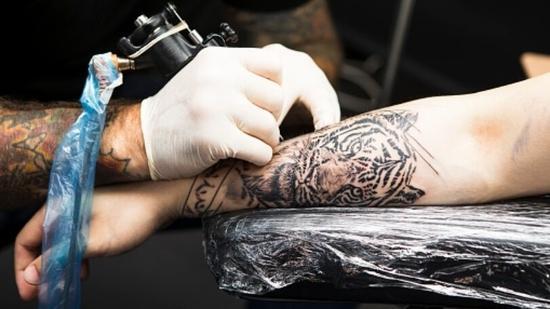
Large Tattoos Have Higher Risk of Developing Skin Cancer: Study
In recent years, tattoos have become increasingly popular, with more and more people opting for permanent body art. While tattoos can be a beautiful and meaningful way to express oneself, a new study has raised concerns about the potential health risks associated with them. According to a recent study conducted by the University of South Denmark, individuals with large tattoos have a higher risk of developing lymphoma or skin cancer.
The study, which was published in the journal Epidemiology, analyzed data from over 2,000 participants, including those with tattoos and those without. The researchers found that participants with any form of tattoo were 62% more likely to be diagnosed with cancer than non-tattooed participants. This increased risk was particularly pronounced for individuals with large tattoos, who were found to have an even higher risk of developing skin cancer.
The study’s findings suggest that tattoo ink may be a contributing factor to the increased risk of cancer. While the exact mechanisms behind this risk are not yet fully understood, the researchers believe that the chemicals used in tattoo ink may be carcinogenic. These chemicals can cause mutations in DNA, leading to the development of cancer.
The increased risk of skin cancer associated with large tattoos is particularly concerning, as skin cancer is one of the most common types of cancer in the world. According to the World Health Organization (WHO), over 1 million new cases of skin cancer are diagnosed each year, and the incidence of skin cancer is increasing worldwide.
The study’s lead author, Dr. Tina Tfelt-Hansen, emphasized the importance of being aware of the potential health risks associated with tattoos. “We know that tattoos have become very popular, and it’s important that people are aware of the potential risks,” she said. “While the risk is not necessarily high, it’s still important to take precautions to minimize the risk of developing skin cancer.”
The researchers also found that the risk of skin cancer was highest for individuals with tattoos that were larger in size and those that were located in areas of the body that receive more sun exposure, such as the arms and legs. This is because these areas are more prone to sun damage, which can increase the risk of skin cancer.
So, what can you do to minimize the risk of developing skin cancer if you have a large tattoo? Here are a few tips:
- Practice sun safety: When spending time outdoors, be sure to wear protective clothing and apply a broad-spectrum sunscreen with a Sun Protection Factor (SPF) of 30 or higher.
- Avoid tanning beds: Tanning beds emit ultraviolet radiation, which can increase the risk of skin cancer. Avoid using tanning beds and opt for sunless tanning products instead.
- Get regular check-ups: Schedule regular skin checks with a dermatologist to monitor your skin for any changes or abnormalities.
- Consider using sun-protective clothing: If you have a tattoo on an area of the body that receives a lot of sun exposure, consider using sun-protective clothing to cover the area.
In conclusion, while the study’s findings are concerning, it’s important to note that the risk of skin cancer associated with large tattoos is not necessarily high. By taking precautions to minimize the risk of developing skin cancer, individuals with large tattoos can reduce their risk of developing this serious disease.
Source:
https://www.sdu.dk/en/forskning/ebb/nyt_epi/tattoos-and-cancer






